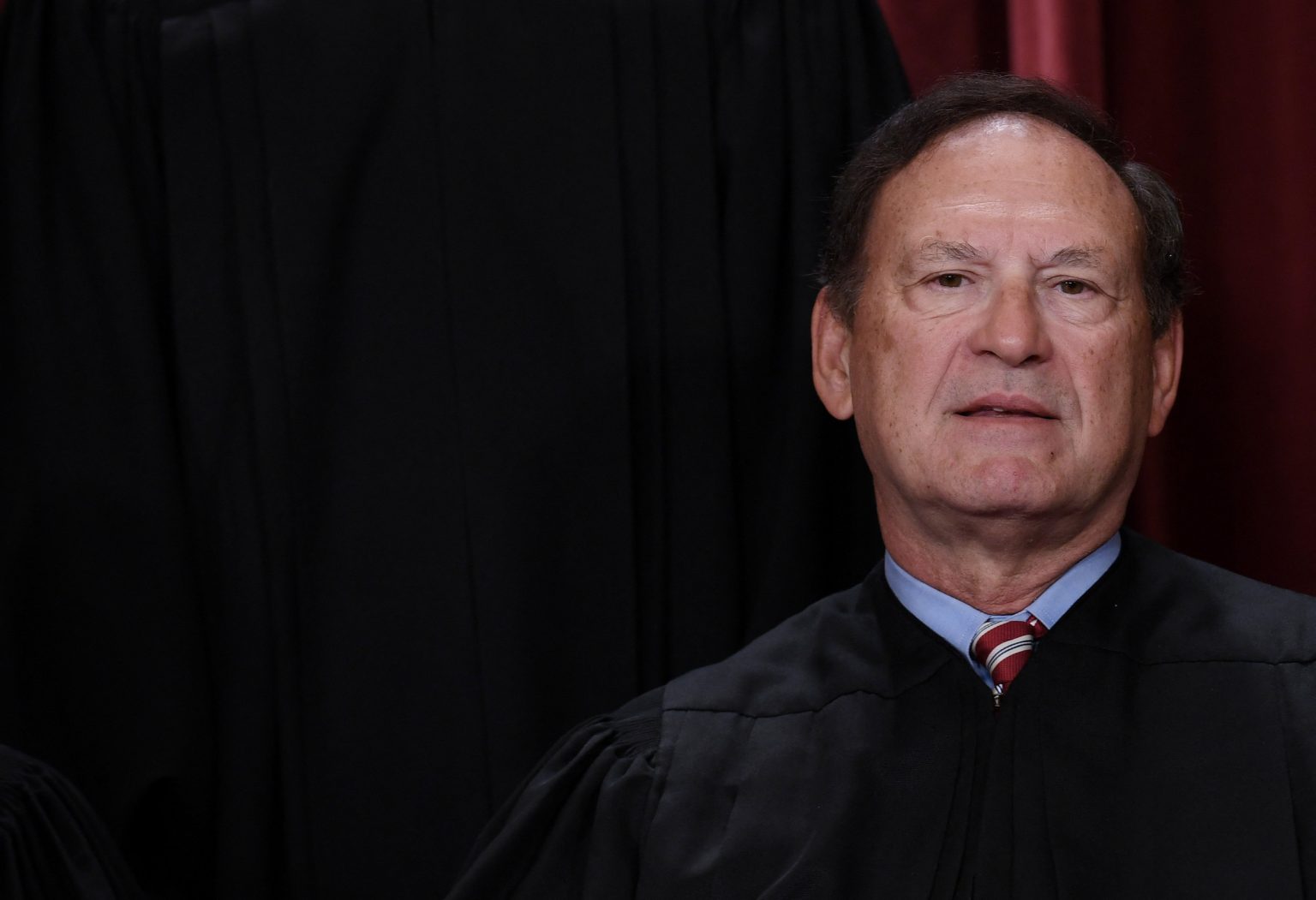Legal analyst and emeritus professor of constitutional law at Harvard Law School, Laurence Tribe, called for Supreme Court Justice Samuel Alito to be subpoenaed by Senate Judiciary Committee Chairman Dick Durbin on Saturday. This comes after photos obtained by The New York Times showed an upside-down American flag flying in Alito’s yard in Virginia on January 17, 2021, following the attack on the U.S. Capitol by former President Donald Trump’s supporters. Alito denies involvement in flying the flag, stating that his wife did so in response to a neighbor’s language on yard signs. The U.S. Flag Code specifies that an inverted flag is used as a signal of distress.
Durbin, a Democrat from Illinois, released a statement on Friday calling for Alito to recuse himself from cases related to the 2020 election and the Capitol insurrection, citing bias due to the upside-down flag being a symbol of the ‘Stop the Steal’ movement. Durbin also urged the passing of the Supreme Court Ethics, Recusal, and Transparency Act to enforce an ethics code of conduct for the Court. Nevada Democrat Representative Hakeem Jeffries echoed similar sentiments on X, emphasizing that no one, including Supreme Court justices, is above the law and should not sympathize with violent insurrection.
Political analyst Craig Agranoff supported Durbin’s call for Alito’s recusal but emphasized the importance of accountability and transparency in restoring public trust in the judicial system. Agranoff suggested that Durbin should use his subpoena power to demand Alito’s appearance before the Senate Judiciary Committee for a full explanation, further ensuring judicial impartiality. However, Senator Tom Cotton, a Republican from Arkansas, defended the Alitos against what he described as a smear campaign by The New York Times, insinuating that the publication was trying to intimidate justices and incite mobs.
The debate surrounding Justice Alito’s involvement with the flying of the upside-down flag brings into question issues of judicial impartiality, ethical conduct, and transparency within the Supreme Court. Calls for Alito’s recusal from related cases and the implementation of an ethics code of conduct aim to uphold the integrity of the judicial system. The situation underscores the importance of maintaining public trust in the judiciary and ensuring that justices remain free from bias in their decision-making. The ultimate decision on whether Alito should be subpoenaed lies with the Senate Judiciary Committee, which plays a crucial role in holding those in power accountable.


